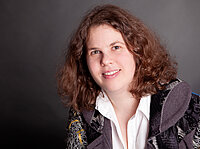Group 10
Comparative Group 10: Empowerment and Gender in the Context of Social Change
Empowerment ∙ gender ∙ social change
In the context of social change and individualisation processes, different social practices in the context of empowerment and gender can be observed. We search for good practice adult education programmes that contribute towards gender equality and empowerment of the participants. Reasons why empowerment and gender equality gained importance in the last years will be discussed along with the question how social change can be observed in different policies. The international comparison will contribute towards an understanding of social change in different societies.
Comparative research question
1. What is the understanding of empowerment? In what kind of social practices can empowerment be observed?
2. How can adult education contribute towards the empowerment of participants?
3. What kind of policies can contribute towards the empowerment of persons in a society?
Context of comparison
The context of comparison is on the macro level:
What policies do national and international political actors follow to contribute towards gender equality and empowerment? (e.g. UNESCO, 2006)
Good practices
We compare good practices from adult education practice. Some examples can be found in the journal Adult Education and Development of the DVV International (e.g. Ghose, 2009, Kwapong Hossain, 2012). Furthermore, education campaigns as the Literacy Initiative for Empowerment (LIFE) that has been implemented by the UNESCO (2006) will be analysed.
Categories of comparison
Policies of national and international political actors that contribute towards gender equality and empowerment
References
Butler, J. (2006). Gender Trouble. Feminism and the Subversion of Identity. New York and London: Routledge.
Ghose, M. (2009). Investing in Adult Womens’ Literacy and Learning: Reflections from an Indian Context. Adult Education and Development, 72. www.dvv-international.de/en/adult-education-and-development/editions/aed-722009/perspectives/investing-in-adult-womensrsquo-literacy-and-learning-reflections-from-an-indian-context/. Accessed: 29. September 2018.
Hossain, S.M. Z. (2012). Empowerment of adult learners in Bangladesh: The journey through reflect. Adult Education and Development, 78. www.dvv-international.de/adult-education-and-development/editions/aed-782012/benefits-of-adult-learning-and-social-inclusion/empowerment-of-adult-learners-in-bangladesh-the-journey-through-reflect/. Accessed:°21. September 2018.
Kwapong, O. T. F. (2005). Using Adult Education for Empowerment of Rural Women. Adult Education and Development, 65. www.dvv-international.de/adult-education-and-development/editions/aed-652005/training-and-empowerment/using-adult-education-for-empowerment-of-rural-women/. Accessed:°21. September 2018.
Stromquist, N. P. (2014). Freire, literacy and emancipatory gender learning. International Re-view of Education, 60(4), 545-558. DOI:°10.1007/s11159-014-9424-2

Prof. Dr. Regina Egetenmeyer, Julius-Maximilian-University Würzburg, Germany
Regina Egetenmeyer works on questions of Lifelong Learning, informal learning, and professionalization in adult education and mobility for learning purposes. Since 2013, she holds the Professorship for Adult and Continuing Education at the University of Würzburg. She is a visiting Professor at the International Institute of Adult & Lifelong Education, New Delhi (2014-2018). Her research emphasis is on internationally comparative research in adult and lifelong learning.

Stefanie Kröner, Julius-Maximilian-University Würzburg, Germany
Since 2014, Stefanie Kröner is a PhD Student and research fellow at the professorship for adult and continuing education at the JMU Würzburg. Her Research interest is social equality, empowerment and literacy.


